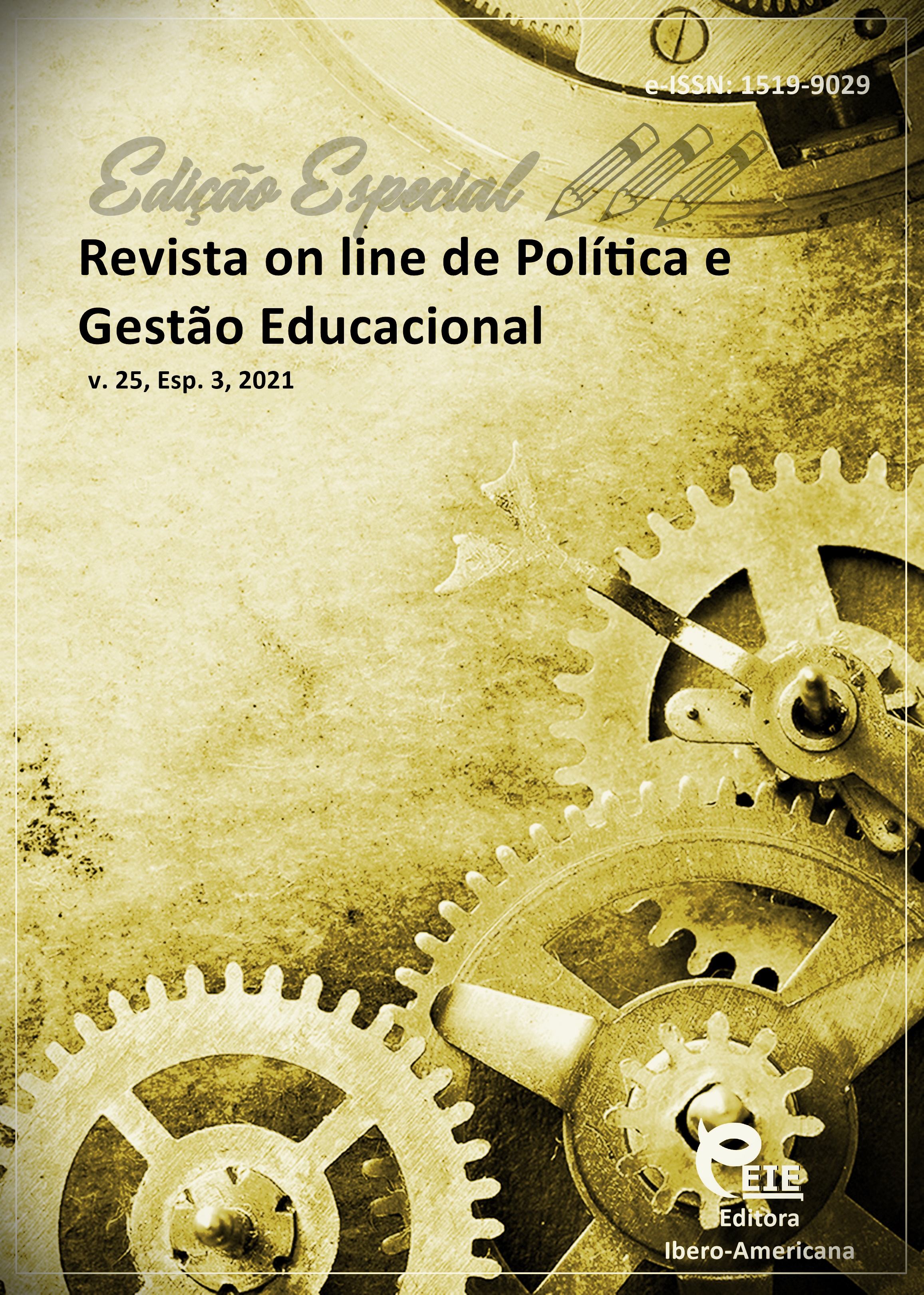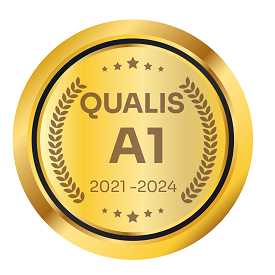Arquitectura de datos en plataformas educativas digitales y datos - competencia de los profesores
DOI:
https://doi.org/10.22633/rpge.v25iesp.3.15591Palabras clave:
Arquitectura de datos, Análisis de datos educativos, Competencia de datos de un maestro, Educación para el desarrollo, Amplificación del desarrolloResumen
El trabajo tiene como objetivo identificar la arquitectura de datos y estructurar los tipos de datos educativos analizados en diversas plataformas educativas digitales. El artículo presenta materiales de investigación por el método de análisis genético de acciones laborales y tareas profesionales de un docente, necesarios para una organización competente del desarrollo basada en datos. El estudio 1 estudió 25 plataformas educativas digitales para educación general de diferentes países, incluidas 9 rusas (públicas, privadas y corporativas). El estudio 2 incluyó el método de análisis genético de las acciones laborales y tareas profesionales de los docentes para organizar el desarrollo de los niños a partir del análisis de datos educativos. Los resultados obtenidos permiten decir que en el entorno educativo digital se amplía el abanico de tareas profesionales y las acciones laborales del docente se transforman en la implementación de actividades de desarrollo (como función laboral) a partir del análisis de datos educativos.
Descargas
Citas
ANDERSON, C. Analytical culture: From data collection to results. Litagent MIF, Moscow, 2017.
BETELIN, V.V.; KUSHNIRENKO, A.G.; SEMENOV, A.L.; SOPRUNOV, S.F. On digital literacy and the environments of its formation. Informatics and its applications, v. 14, n. 4, p. 100-107, 2020.
CARRETERO GOMEZ, S.; VUORIKARI, R.; PUNIE, Y. DigComp 2.1: The Digital Competence Framework for Citizens with eight proficiency levels and examples of use. Publications Office of the European Union, Luxembourg, 2017. Available: https://publications.jrc.ec.europa.eu/repository/handle/JRC106281
DAVYDOV, V.V. Theory of developmental learning. INTOR, Moscow, 1996.
Decree of the President of the Russian Federation No. 642. On the Strategy of Scientific and Technological development of the Russian Federation. December 1, 2016. Available: http://www.kremlin.ru/acts/bank/41449
DHANRAJANI, S. Al and Analytics Accelerating Business Decisions. The new normal in Strategy and Enterprise Transformation. New Delhi: Wiley India Pvt. Ltd., 2018.
EDM 2021 22nd International Conference of Young Specialists in the field of electronic devices and materials. Altai, Russia, June 30 - July 4, 2021. Available: https://edm.ieeesiberia.org
End-to-end technologies of NTI. National Technology Initiative, n.d. Retrieved from: https://nti2035.ru/technology/
FIOFANOVA, O.A. Analysis of the current state of research in the field of data-based education management. Values and meanings, v. 1, n. 65, p. 71-83, 2020a.
FIOFANOVA, O.A. Data-based pedagogy – a strategic direction of pedagogical education: competencies for analyzing educational data in professional and educational standards. The world of university science: culture, education, n. 9, p. 155-167, 2020b.
FIOFANOVA, O.A. Designer of competence modules of professional development programs for data experts in the field of education (Designer of competencies for data experts in education). Certificate of registration of the database (patent) 2020622411, Application No. 2020622293, November 11, 2020c.
ICEDM 2021: 15. International Conference on Educational Data Mining. London, United Kingdom, December 9-10, 2021. Available: https://waset.org/educational-data-mining-conference-in-december-2021-in-london
INMON, W.H.; LINSTEDT, D.; LEVINS, M. Data Architecture: A Primer for the Data Scientist. Academic Press, Moscow, 2019.
International Conference on Educational Data Mining (EDM). Paris, France, 2021. Available: https://educationaldatamining.org/edm2021/
It is necessary to develop a standard for the digital educational environment. Analytical Center under the Government of the Russian Federation, March 3, 2021. Available: https://ac.gov.ru/news/page/neobhodima-razrabotka-standarta-cifrovoj-obrazovatelnoj-sredy-26863
KENNEDY, K.; PETERS, M.; THOMAS, M. How to use the analysis of value-added data to improve the education of schoolchildren: A guide for schools and school district leaders. HSE, Moscow, 2012.
MARGOLIS, A.A. The zone of immediate development (ZBR) and the organization of educational activities of students. Psychological science and education, v. 25, n. 4, p. 6-27, 2020.
NOCKER, M., VANIA, S. Big Data and Human Resources Management: The Rise of Talent Analytics. Social Sciences, v. 8, n. 10, p. 1-19, 2019.
SHCHEDROVITSKY, G.; ROZIN, V.; ALEKSEEV, N.; NEPOMNYASHCHAYA, N. Pedagogy and logic. Publishing house "Kastal", Moscow, 1993.
SULLIVAN, J. Talent Management and Big Data Lessons. Talent Management Thought Leaderschip, November 19, 2012. Available: https://drjohnsullivan.com/uncategorized/4-talent-management-and-big-data-lessons-from-the-presidential-election/
VYGOTSKY, L.S. Psychology of child development. Eksmo, Moscow, 2004.
ZINCHENKO, V.P.; MORGUNOV, E.B. A developing person: Essays of Russian psychology. Trivola, Moscow, 1994.
Publicado
Cómo citar
Número
Sección
Licencia
Derechos de autor 2021 Revista on line de Política e Gestão Educacional

Esta obra está bajo una licencia internacional Creative Commons Atribución-NoComercial-CompartirIgual 4.0.
Manuscritos aceitos e publicados são de propriedade da Revista on line de Política e Gestão Educacional. É vedada a submissão integral ou parcial do manuscrito a qualquer outro periódico. A responsabilidade do conteúdo dos artigos é exclusiva dos autores. É vedada a tradução para outro idioma sem a autorização escrita do Editor ouvida a Comissão Editorial Científica.











